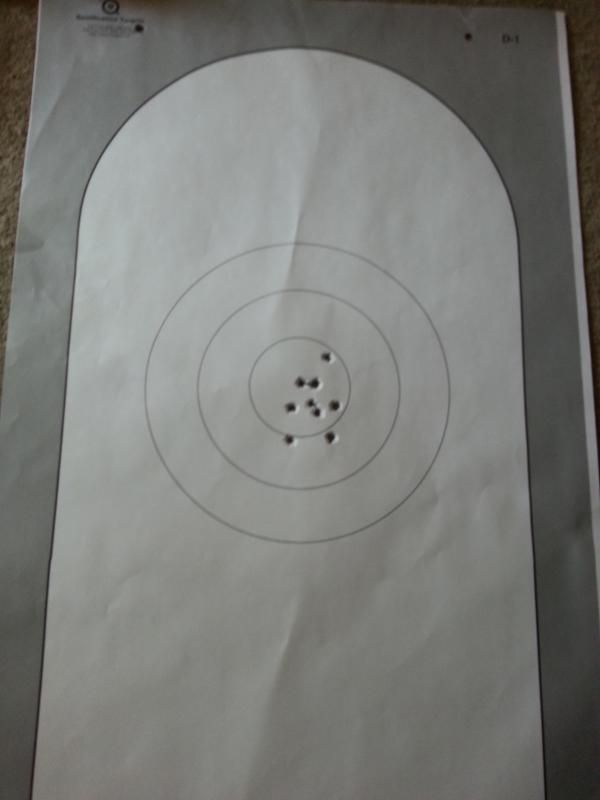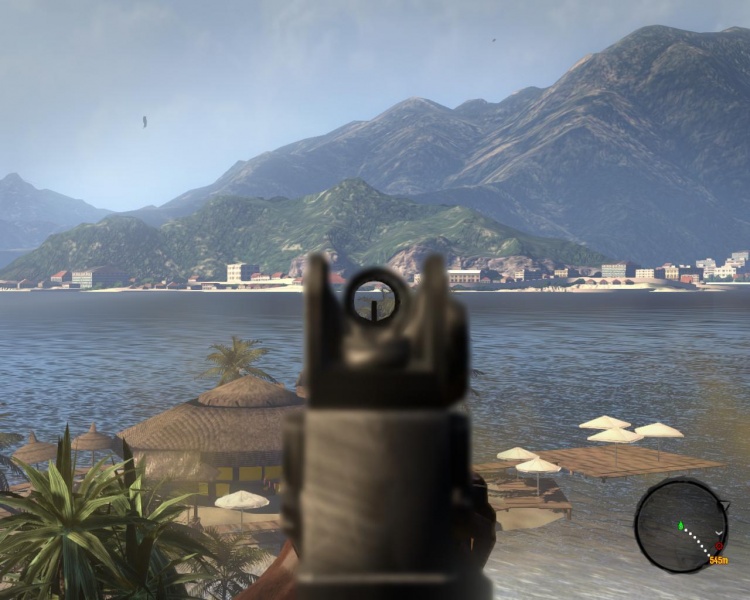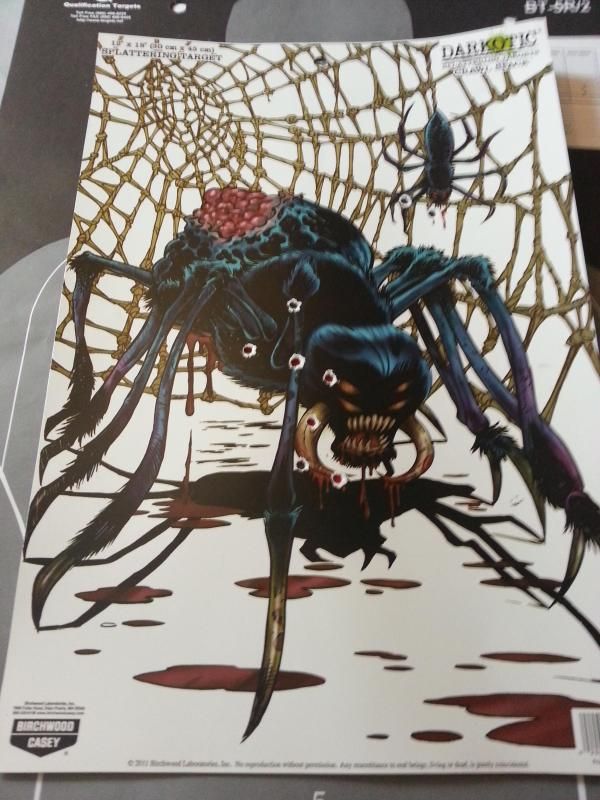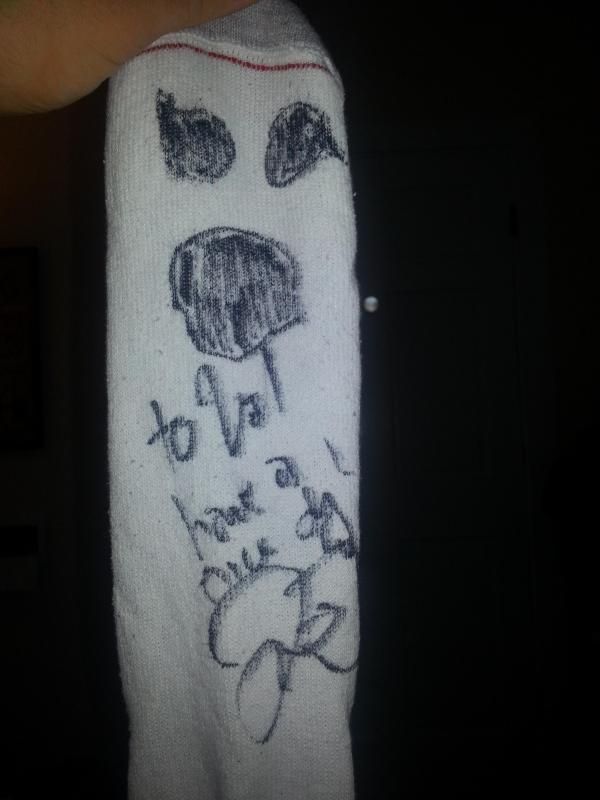Let me preface this by saying this may come across as heavy-handed and bitter, largely because it is both. This is an accurate portrayal of the unfiltered misery we endure when someone we love dies. And
that’s okay. It’s perfectly natural. This is how you’re supposed to feel. My case is not
unique and something we will all go through, if the natural order of things
comes to pass. While it came much sooner for me than the average person, I’d imagine
it to be no worse; death doesn't become easier in your 50s and 60s than in your 20s or
30s, I reckon. This is a stream of consciousness I logged while coping
with the initial event and aftermath of becoming the last in my lineage. I will
likely offend a small number of people by writing this. The truth hurts, and
there’s no point in writing this without honesty.
---
It was a little after 3PM on May 4th, 2014. I was
enjoying my Sunday off, home alone while my then-fiancée was at work. I looked
down at my cat, who was enjoying the sun beaming through the shade. I took
pictures of her staring up at me, usually a difficult, camera-shy cat who was
too relaxed to care about the camera looking her in the eyes. It’s a cliché,
but everything was peaceful. And then the phone rang.
The final picture taken seconds before my life changed.
My Aunt Chris (whom I call Gee with a hard “G”) was calling.
I was hoping maybe she wanted to go to dinner. I picked up and noticed she was
upset. She was tasked with one of the hardest things a person can do in telling
a son that his mother has died. I’ll never understand the amount of bravery
that took, and will always love and respect her for it. “She’s gone,” she said
through composed tears. I replied “who?” but I knew exactly who she was
referring to; I did not need clarification. It’s something we say out of
impulse when we don’t want to believe what we’re hearing, like your leg
involuntarily moving when the doctor smacks your knee with the rubber hammer. I
went into “maintain” mode, standing up and moving to the closet to get dressed.
“Talk to me,” she said on the other line to make sure I wasn't passing out. I
kicked over a bowl of candy and suddenly cleaning it up was my top priority. I
was in idle-minded auto-pilot.
I made my phone calls after hanging up with her. First, to
Val at work. I apparently told her co-worker that my mother had died, so she
found out second-hand, though I have no memory of the call whatsoever. She
would be home shortly. I called my best friend Reed next, who remained my solid
rock on turbulent shores for the next 48 hours. My aunt Sheri. My friend Jen.
Reed met Val and I at our house, and we rode over to my mom’s house.
The time spent there was just like loud static in my head.
We arrived shortly before they carted her body out. I did not see her body,
either there or the crematory, out of preference. I recall friends and family
gathering at the news of what happened. A lot of powerful silence and forced
conversation with neighbors inquiring as to what had happened. She died peacefully
in her sleep. Her heart gave out. She was found by her boyfriend, Millard,
surrounded by her three dogs, who refused to budge from her side. It’s the way
we should all dream of dying, just not at the tender age of 59.
Mom and I at our favorite restaurant. We stopped going in 2014 due to her health.
In the coming days, filled with death certificates and
cremations and closing accounts and switching bills over, we sat in the
backyard and drank. We drank and we cried and we laughed. And laughed, and
laughed, and laughed. The sum of a person’s life is measured by the amount of
stories that live on after they can no longer provide us with new ones, and I
have to say that my mother provided us with enough stories that she will never
be forgotten to anyone she met, however briefly. The last time I ever saw her,
I gave her a back rub and brought her Ted Drewe's, a delicious local frozen
custard that was out of the way for her. She ordered a hot fudge sundae, and we
delivered it on dry ice. The time before that, we had brought her food earlier
that week. I sleep well knowing my last encounter with my mom was solely to surprise
her with treats and make her happy.
Between the time of my marriage proposal to Val and getting
married, I lost both of my parents. Everyone responsible for the creation of my
existence is gone. I’m the next to die in my lineage by default, as no one else
is left, something that has weighed heavily on me every day since. Next in
line, order up, stepping into the batter’s box... Life can be cruel and it can give
you callouses. People who say that everything happens for a reason, be it
religious or some predetermined force, need justification for
everything. Those people are wrong. Things do not happen for a reason. Oh, to have a dollar for every ill-conceived “she’s watching you
from Heaven” comment I received after specifically and politely asking people
to refrain from pushing their beliefs off on me just this once. There’s a time
and a place for it, and this wasn't it. Some people allow their religious pride
to run amok against conventional manners and good taste. Some were even
offended I’d request such a thing! Yet they’re the ones oppressed. Oh, this
society of backwards logic.
Not everything in life ends with a moral lesson or purpose.
Life is a series of anecdotes, some funny and some funny in not-funny ways. Most
with a lesson are harsh. Louis C.K. once said that a perfect marriage—the
happiest possible outcome—ends with you burying the person you built your life
around for 50+ years and learning to live without them and the happiness they
provided. Anecdotes.
A few weeks later, I waved goodbye to Val as she left town
for a couple of weeks to visit her family. My family largely dissipated, and though I
wanted her to stay, I wouldn't be much of a man to keep her from her own family
in light of what had happened to mine. She remained strong for me and broke
down in private to keep me functioning. Her taxi pulled away and I crumbled on
the front lawn, the prospect of being in an empty house for two weeks grating on my mind.
There was no one left to tend to me but me, so I had to conquer everything in
my path with productivity. Despite all the progress made with bill collectors
and managing accounts I knew nothing about, I felt like I was drowning.
The seats from our ballgame. Severe weather rolled through to delay the start.
My pal Jesse picked me up to offer some reprieve a few days into isolation and took me
to the baseball game, where I caught my first and last glimpse of Derek Jeter
in person. The ballpark has always been the place I go to clear my mind of
anything I’m going through. Despite a sellout crowd and standing room only
tickets, we took a seat in batting practice and watched every seat but ours
fill around us for a perfect view of the game. We spoke for hours about a
variety of things, from losing our parents to debt, all while getting hit on by
transvestites in a Rally’s parking lot after the car broke down. It was a
memorable night, and the night I mentally turned the corner. I had to get
tough, or I’d be crippled from the burden. Dinners with my aunt Gee and uncle Don helped me through it all. We laughed at a couple's hoarder van outside of a restaurant one night, which looked to be packed with every single belonging they owned. It was the type of quirky thing that Mom would have loved.
I've been told that I move too fast in these circumstances, and it’s insensitive to worry about the future and keep a routine in the wake of death. That’s incorrect. What’s insensitive is that the world doesn't stop turning just because someone you loved dies. This is no longer a world with something as beneficial as a grieving period. That went away last century. In the grand scheme of things, the faceless people who sign your paychecks and mail your bills don’t give a flying fuck about how you’re feeling today. You either keep running or get left behind.
One of the two storage facilities we cleaned. In view: two of the nine rows of containers needed moving.
In what would be the hardest thing I've ever done, Val and I
departed at 7AM on June 6th to go a few hours into the country where my mother
had two storage facilities. The owner was to evict her from the lease and
discard her items, so time was of the essence—just another small thing you wouldn't
think of in a world that doesn't wait. We elected to go alone to offer rest for
the family, as the task was to be a daunting one and we felt they were handling enough as is. We had no idea how naïve we
would be. As pictures can offer, the storage facilities were filled from front
to back, top to bottom with Rubbermaid containers featuring all of my childhood
belongings, as well as my mom and deceased grandmother’s personal things. To my
utter dismay, most of the items we recovered were ruined by water damage,
including pictures and family writings, as the containers had crumbled in from the
elements compressed over time. In my hands were constant reminders of happy
times accentuated by decay and destruction. Items that once brought hours of
joy were destroyed; more misery to heap upon my weary shoulders. Lifting the
hundred or so containers we recovered into the U-Haul amid the June Missouri
heat, where humidity meets 100+ degree temperatures, was only bested by our 1AM
arrival back home, where said containers needed to be unloaded to avoid an
additional day’s rental of the U-Haul. Once the heavy lifting was over, it was
4AM. Val chose between showering or eating, wisely choosing the former, while I
was too exhausted for sleep, a phrase I didn't know was possible, and opted for
both. Neither made me feel better. The adversity we faced was enormous in
accomplishing the task, but there was no room in my heart for celebration. My
parents were dead, and I just hauled the remainder of the corpse of my
childhood home to sort through on better days. It remains largely unsorted in
my basement. I realize now that it was also naïve to assume there would be a day
where I’d feel like going through it.
Val is the best person I've ever known. No one else would
have selflessly done what she did at the storage facility. She is my consummate
companion.
They say you won’t know your friends until your loved ones
die, or when you run a charity. I was coping with both simultaneously. We
raised over $5,000 in memory of my mom for Stray Rescue of St. Louis. The money
raised would go towards building a plated bench in her honor outside of the Stray
Rescue facility, which is a no-kill dog shelter that she supported with monthly
donations since its inception. I dealt with people doubting the decisions I
made, be it the lofty amount (“aim for the stars, land on the moon,” I say),
the method in which we accepted the donations (GoFundMe, which was newer at the
time), or whether the bench would even be made. It was all on my shoulders,
through success or failure. We achieved the goal thanks to countless donors and
the site was reputable, though the bench is still in the process of being made.
I often become frustrated to this day with Stray Rescue’s lack of urgency in
getting the bench done nearly a year after we gave them the money, but then I
am quickly humbled when I view pictures of the injured dogs they've nursed back
to health in that time span. It will be made when it will be made, and the money
saved lives—something far more important than the bench itself. I should not be
resentful towards them. I just hope donors understand that I am not sitting on
my hands with the project, and have been proactive throughout the year on a
weekly basis without fail in keeping the focus on getting the bench made.
Running a charity drive for something so personal is
intoxicating. It boils bad feelings on the burner. Every donation swells your
heart, and then you realize a certain person hasn't donated a dime—or even
acknowledge it in the slightest—while clamoring on and on about the latest
throwaway piece of garbage they purchased. “I didn't really need this, but I thought
I’d buy it anyway.” Those nuances to managing a charity drive can ruin
friendships, or sever members from the family tree. Those who disappointed me
with a lack of acknowledgement for what we were doing and accomplished will
never be forgotten, for better or worse. On the other side of that coin, I’d be
speechless at seeing hefty donations from people I've worked with, or social
media acquaintances who chipped in or promoted our cause so passionately. I
thought that the world became less charitable with my mom’s death, but these
people proved that if anything, her death inspired others to be like her.
One of the positives to someone dying that you loved is the
worry is lifted from your shoulders. There’s a constant dread in my mind that
something terrible is going to happen. I used to worry about this as a
five-year-old boy, sitting at the screen door, waiting for my mom to pull up
from getting the groceries. “What if she’s dead?” I’d think, “What if someone
hit her, and she died?” This developed into a graver worry later in life when
her health began to decline. I sat in bed on Christmas Eve 2012, wide awake at
3AM, and thought “This could likely be my last Christmas with Mom.” I got one
more out of her, but I wasn't far off. I told her at Christmas 2013, “I
appreciate every holiday I spend with you.” Somewhere in my mind, I knew she
knew it was her last, too. She spoke of it in that way. After she died, it hit
me while passing her old hospital, where Val and I took her and saved her life
from pneumonia towards the end. She’d have died if we’d have done nothing, and
I’m proud that we did. When I realized I was free of those worries, it was
oddly relieving… at least until those health worries were replaced by the
health worries of other family members five months later. Meet the new boss,
same as the old boss. Still, the several months without those worries were
refreshing, a new sensation unlike any other. I’ll always appreciate them,
however brief they were.
Gestures, big and small, go a long way. These are the people
who mattered most: Val, for being the person to keep me upright every day and
supporting me with everything. Gee, having been there every step of the way,
lifting me up on bad days and lifting me higher on good days. She has the sweetest heart and I wish I could do more for her than I do. She is like my mom, in that she is such a good friend in addition to being family. Jen, who had a
pizza delivered from 2,100 miles away the day mom died, just so I would not go
hungry or forget to eat. Reed was there for everything, including feeding me
and being my brother. Millard and his nephew Jeff have taken care of mom’s
house, offering me one less burden to bear. A day never passes where I don't appreciate that. Tom and Mary, my in-laws, drove 585
miles to be with me and help in any way possible, including handling double
duty at the wedding since I no longer had parents to help us prepare, to which
Jen deserves additional credit, as well. My friend Tim, who purchased a collage
of photos of my mom, which hangs in my living room. Jesse Fenton, again, for
helping me mentally turn the corner and take control again. My co-workers did
my work for me for two weeks when they were not contractually obligated to. All
of the acquaintances and close friends who donated to Stray Rescue floored me;
for every one person who disappointed me with a lack of caring, five-to-ten surprised
me with their generosity or verbal support.
I collect baseball cards. It's a hobby that offers me a chance to be a kid again and keep me light at heart, regardless of how dark this whole write-up has been. A common practice in the world of baseball cards upon the death of an athlete is to create a card featuring a signature of the deceased. Having owned the final check my mom ever wrote, I decided to do just that as a fitting memento to keep in remembrance of her. A guy I know created the card for a small fee, while I helped with its design and wrote everything. It is among my most cherished possessions.
Life doesn't get any easier. It finds new ways to get your
hands dirty and ruin your good looks, one after another. In the past year, I've
fought tooth and nail with credit card companies over fraud when lawyers
deserted me, and I won by myself. I have dealt with bad medical news that will
change my life forever, or—worst case scenario—provide me with my next great
tragedy. My best friend nearly died due to heart complications. Life never gives reprieve. Life is a series
of problems. You've got to get tough. You can’t control the majority of what
life throws at you, so you need to become strong enough to face it. Given the
age my parents died, I’m in my midlife crisis right now. It has changed my
perspective on a number of things, as I am no longer afraid to speak up and
confront someone I disagree with. My life experience has given my opinion
credence, and makes what I have to say valid as a human being who has weight
behind what he thinks and feels. No longer do I sit on my hands and not call
someone on their bullshit. I never took anything for granted before my parents
died, though I suppose that would be the ultimate lesson to take away from such
an event. Appreciate everything. From the random gifts you receive, to
the comfortable silence of a car ride in good company, to the holidays you
share with your loved ones, to the long nights of laughter with a friend. They
all matter, to some degree. Acknowledge them.
People often ask me, “If you could say one last thing to
her, what would it be?” I’d say nothing. I have no regrets. If your parents are
still alive, I implore you to live as I did and never waste a single
opportunity. Say what you need to say. I miss her as a friend far more than as
a mom. Parenting bloggers say you shouldn't try to be friends with your kids,
and I scoff at the notion. My mom was one of my very best friends, and a blast
to be around. She was the type of person who made waiting to see the doctor
fun, something not everyone could do. There are times like these when I miss
her most. Not many people are awake at 3:52AM, but she was. Since her death, my
only friend on nights like these is the loud, awful silence while everything is
still in the world outside my door.
Relationships are like puzzles, and each person in them
holds certain pieces. Together, you have a complete picture. When you wish to
revisit the puzzle, you will call that person and ask them for pieces you may
have forgotten about to complete it. No longer can I piece together things that
happened in my childhood and receive a clearer picture of those happy times. The
puzzle is incomplete from here on; pieces will deteriorate as my memory fades,
making an even more incomplete picture. The memories we shared together now
cease to exist when I die. It will be like those puzzles never existed in the
first place. Tell everyone you know at least one little story about someone else in your life, so those puzzle pieces will be scattered throughout the world long after you leave it.








.jpg)






